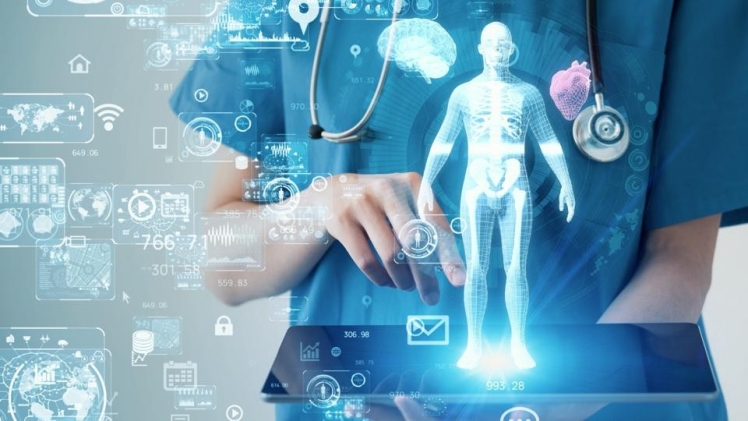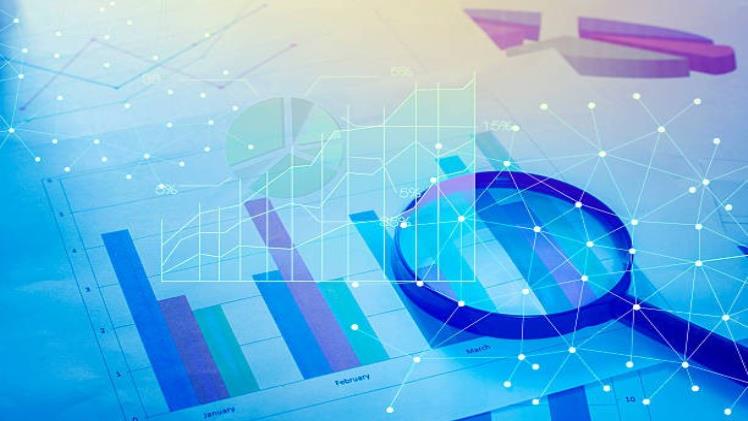
Leveraging Data Science For Personalized Healthcare Solutions
It is 2023, and we are in the age of personalization. In today’s world, personalized services are not just limited to banking, retail, e-commerce, entertainment, and the food industry; they extend even to the healthcare industry. The integration of data analytics and genomics with machine learning and artificial intelligence has paved the way for innovative personalized treatment approaches. Even though the healthcare sector alone generates over 30% of the world’s data, effective data-driven decision-making has not occurred, which is the reason healthcare operations are lagging and incredibly inefficient even now. In a place where time equals life, physicians and hospitals are still struggling to handle the overwhelming amount of patient data they come across every day due to the lack of proper tools and resources, resulting in expensive treatment plans with poor outcomes. However, the integration of data science in the healthcare industry can play a huge role in streamlining the various processes and improving the efficiency of the healthcare industry.
Therefore, if you are already working in the healthcare or IT sector, having the fundamental knowledge of data science tools and skills can help you provide valuable insights that can be used to drive business growth and provide excellent services. Enrolling in a data scientist bootcamp will help you gain the necessary expertise and practical exposure to expedite your journey into the data science realm.
What is personalized healthcare?
Personalized healthcare refers to patient-specific solutions where customized treatment and healthcare solutions are provided to patients based on their unique genetic makeup, lifestyle, and other individual factors. To achieve this feat, data science techniques are integrated into medicine, where large amounts of medical data are analyzed, and valuable health insights are gained, based on which treatment plans are optimized. This helps in increasing treatment efficiency, reducing side effects and negative outcomes, and giving personalized care to patients. Personalized healthcare (PHC) involves the terms personalized medicine or precision medicine, and it helps in overcoming the rut of following the same treatment protocol for patients. Such a treatment approach is rudimentary as only a section of patients responds well to the same treatment approach, whereas the majority of patients require individualized care and targeted treatment plans for their diseases. Thus, with the digitization of the healthcare industry, healthcare professionals are able to have an advanced level of understanding of the human body and disease biology, and with the advancements of new tools and diagnostics, one is able to achieve a shift towards personalized healthcare solutions, which is to provide the right treatment to the right patient.
Let us now examine in detail the different ways by which data science can be leveraged for personalized healthcare solutions.
1. Patient-specific treatment solutions
The formulation of an effective healthcare plan or personalized treatment plan is highly centered on how we make use of data. But, with the advancements in machine learning, data analysis, and natural language processing techniques, we have the right tools at our disposal to make sense of the data. For example, in the treatment of major diseases like heart failure, data science can help in optimizing treatment procedures for patients with varying manifestations of heart disease. For example, using advanced analytics methods, it is easy to single out patients with a higher risk of PFO-related complications like a stroke from a huge population by identifying patterns from large data sets. A tiny aperture known as the Patent Foramen Ovale (PFO) is located between the atria, or upper left and right chambers, of the heart, which could allow blood to enter the atria. However, they come with a higher risk of ischemic stroke for some people. Thus, data science specialists can uncover patterns using machine learning algorithms and predictive analytic models and help in providing timely and customized treatment plans for these patients, thus saving their lives. Due to these advanced techniques, in the future, a hospital can uncover such patients by comparing their data with that of millions of similar patients. This will match a new patient’s symptoms and diagnostic results to a treatment that should have the best chance of success. Such optimized treatment protocols can help in targeted drug development and successful clinical trials that help in formulating potent drugs that make cures available faster.
2. Rare disease detection
Data science can enable the provision of optimal treatment for people suffering from rare diseases. Often, those afflicted with rare diseases and conditions go years without receiving a diagnosis, and if get detected, they might not have access to treatment. This is because, since individuals with such rare conditions do not come across more often and hence a doctor or hospital will never notice any patterns. However, using Big data analytics, numerous institutions, and rare disease patient registries will be analyzed to determine which individuals should be referred for genetic screening. By being able to swiftly identify patients with rare diseases from a huge population, the right treatment at the right time can be given.
3. Medical Imaging
One of the main areas where data science finds major applications is the area of medical image analysis. Medical imaging refers to the process where medical imaging techniques such as X-ray, sonography, MRI, mammography, and CT scan are used by doctors to find abnormalities in the internal human anatomy. The diagnostic efficiency and accuracy of medical imaging tests have been significantly improved with the aid of deep learning-based algorithms in data science. As a result, physicians are now able to diagnose patients more accurately and develop more effective treatment plans.
4. Risk assessment using Genomic analysis
Analyzing the genome or the basic genetic makeup of an individual plays an important part in revealing an individual’s predisposition to a particular genetic disease. For example, using genome analysis, researchers can gain more insight into genetic and hereditary diseases like Alzheimer’s, Parkinson’s disease, etc. Due to advancements in data sequencing technology, whole genome sequencing of a person’s genetic code has become much more affordable and easily accessible. Gene sequencing of the patient’s whole genome can help doctors identify irregularities or anomalies in the DNA sequence, thus helping in diagnosing hereditary diseases. Information is retrieved from the genetic data using data science tools like MapReduce, SQL, Galaxy, Bioconductor, etc. Thus, the use of data science techniques in the healthcare industry has paved the way for better disease diagnosis and helps doctors identify the effect a genetic anomaly has on a person’s health condition. Such discoveries can help doctors draw individualized treatment plans where targeted drug delivery, or gene therapy can be employed to reduce the onset of hereditary disease in an individual.
5. Accurate Diagnosis using Predictive analysis
Accurate disease diagnosis is very important in the medical field as it helps doctors devise individualized treatment strategies that are effective. Data science uses predictive analysis algorithms to help identify patterns and relationships in data, which is extremely useful in disease diagnosis. This helps in preventing negative outcomes, especially in the treatment of terminal diseases. Predictive analysis can be used for early intervention, especially in assessing the stages of cancer metastasis and determining the extent of cell invasion.
6. Management of diseases
Data science tools can be used for continuous health monitoring of patients. Active monitoring is helpful in understanding how a patient is responding to a particular treatment and also in tracking disease progression. Harnessing the power of IoT (Internet of Things), wearables like fitness monitors and smartwatches use real-time analytics, which allows doctors to receive updates about patient’s health issues on their cellphones. The sensors in these wearables detect even the smallest variations in blood pressure, temperature, stress level, heart rate, etc., which helps in forecasting potential health risks and helps doctors in predicting possible health hazards and formulating plans to stop further decline in health.
7. Digital assistance
The application of data science in creating virtual support software has immense application in the healthcare industry, especially when it comes to personalized healthcare solutions. Virtual support systems offer personalized experiences to every patient where patients need to input only their symptoms, and the software determines the disease and its prognosis. Thus, it helps in creating a sophisticated and easy-to-use individualized experience for patients. Moreover, it can be utilized to offer insightful recommendations about the medication and course of care the patient should follow.
Conclusion
Thus, by leveraging powerful data analytic tools in the healthcare industry, we are able to realize the dream of providing patient-specific healthcare solutions. This helps in promoting efficient and transparent communication and collaboration throughout the healthcare sector and offering committed support to patients in their journey towards a disease-free and healthy life.






